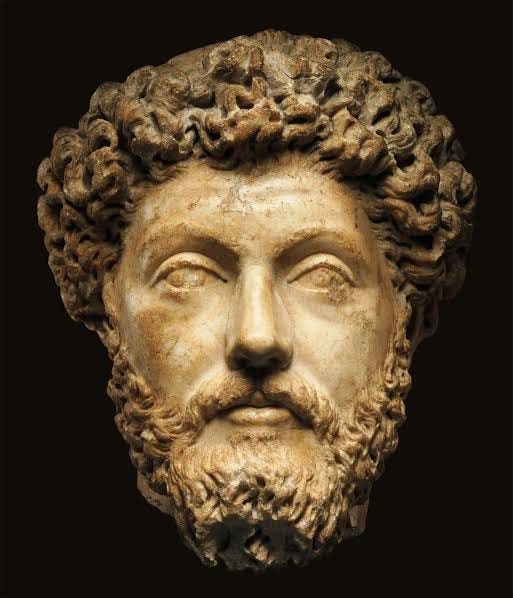This post veers from others I have done in the past because it explores someone else’s work and not my own. Or, does it?
I have been thinking a lot about “becoming” lately. Sort of ironic, right?! Of course, as you may recall Becoming is the title of an aptly named memoir by former First Lady of the United States, Michelle Obama. Perhaps we can explore those Gladwellian connections in a future post at another time. This post is about what one white hot influencer says are the stages of becoming the best version of yourself and how it works. Well, actually, it’s about what one branch of Greek Philosophers claim.
I’ve been reading Ryan Holiday’s blog, The Daily Stoic, over the past few years. Holiday, a very persuasive and engaging public intellectual, has practically cornered the market and elevated the idea of “becoming the best version of one’s self.” I thought I would do Holiday one better and ask Generative AI to cull his work and tell me what The Daily Stoic is about:
Focus on the process, not just the goal: The journey of becoming better is more important than reaching a specific destination; prioritize the daily practices and habits that contribute to growth.
Identify your desired identity: Decide who you want to be and actively cultivate behaviors that align with that self-image, like being punctual, disciplined, or resilient.
Embrace discomfort: Growth often happens outside your comfort zone, so actively seek challenges and situations that push you to develop new skills.
Manage your ego: Recognize that an inflated sense of self-importance can hinder progress; strive for humility and self-awareness.
Learn from Stoic philosophy: Drawing from ancient Stoic teachings, Holiday emphasizes the importance of accepting what you cannot control and focusing on your own actions and reactions.
Practice self-reflection: Regularly evaluate your progress and identify areas where you can improve
Essentially, Stoicism claims to be about “the process” of knowing what to do to “become” this better self, which comes down to habits and ways of seeing and being in the world. This is not much different than James Clear’s Atomic Habits: An Easy & Proven Way to Build Good Habits & Break Bad Ones, which are ways to build new habits to, in essence, to re-build a new self bit by frothy bit. Those habits can lead to a revised version of the self. In our polarized world, this sounds like a grand thing, but what happens when others spend time on “becoming” a bigger jerk than they were before. In essence, imbibing the lesser angels of their nature?
I appreciate Ryan Holliday’s work, especially in the form of his podcasts. Instead of reading the Stoics in their original, it saves me the time – like Generative AI. I must admit, I have not done the thing which he suggest we all must do, which is to read his books. Perhaps diving into that ancient wisdom makes Holiday more like a human-filtered AI. It goes beyond just positive affirmations and places the reader into a place of understanding the world through the musings of the most well known Stoic of them all, Marcus Aurelius, or the other Stoic in its hall of fame, Epictetus. Holiday assures us that Marcus Aurelius was not writing for us. In fact some of Marcus’s thoughts contradict themselves. Maybe that’s what makes this human generated, fallible way of seeing and being attractive.
Most of the so-called great thinkers, like the Stoics, have been given short shrift over the last thirty to forty years because they emanate from mostly a view of the world that elevates the individual rather than the collective. Critics say that simply by reading one-type of human denigrates or diminishes other types of humans. We see telescopically as opposed to from a wide-angled lens. )You know the drill, “Down with the Elites!”) Or: Whose Canon is it anyway?!
On the other hand, our world has developed in essence by breathing each other’s exhaust on any subject or person or discipline (I’m looking at you Elvis and Eminem), including on the habits and creations of the great and ordinary.

I am not worried about AI as a writer and thinker. As a weapon of war and disinformation, well, yeah, sure. Why doesn’t it worry me? Because as the Stoics would say, “Memento Mori.” “Remember, you will die,” which is the heart of what the Stoics and Holiday teaches. We were meant to live our lives to their fullest, every day, as if in the very next minute or next day we will die.
That duality should give meaning and urgency to everything we do. Isn’t that the opposite of what we all worry and obsess about.
Maybe everything is its opposite.
Unbecoming.
Curated Listening:
Speaking of Elvis, here’s one of his favorites from the end of his life. List to Elvis Presley sing, “My Way” (Aloha From Hawaii, Live in Honolulu, 1973): HERE.




